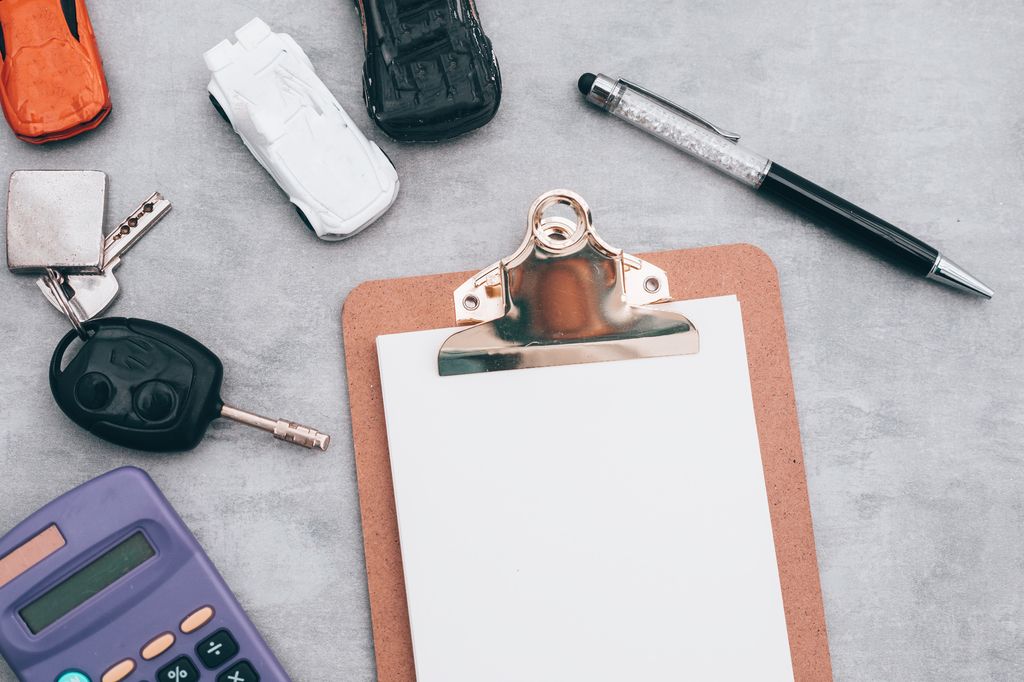Running a car can be an expensive business. Apart from the obvious fuel or charging costs, there's insurance, maintenance, servicing and MOT, parking, tolls - and the annual car tax. Except for some exemptions, VED must be paid on all vehicles registered in the UK that are driven on, or kept on, a public road.
The amount you pay is based on various factors. In a nutshell, the more expensive the car and/or the more polluting, the higher the road tax rate. Understanding the vehicle taxation system is confusing, so here are the answers to your most commonly asked car tax questions.
Do I have to pay car tax?
The simple is – yes, more than likely. That's because even though electric vehicles (EVs) are exempt, most cars on UK roads are still petrol and diesel which emit CO2. You can check whether your car is taxed and the cost at GOV.UK.
Which vehicles are car tax exempt?
Certain types of vehicle are road tax-free, though you still need to register and tax your vehicle, even if there's nothing to pay. Exempt vehicles include electric cars, agricultural vehicles such as tractors, and cars used by people with disabilities, plus classic cars more than 40 years old. However, even though electric cars currently qualify for free road tax, this will change in 2025 when VED charges will be introduced for the first time for EVs.
How much is road tax in 2024?
For 2024, the flat rate cost of car tax for a petrol or diesel car is £180, but the exact cost of your annual road tax will boil down to the age of your car (i.e. was it first registered before April 2017?), the type of fuel it uses, the size of its engine and CO2 emissions. You can check whether your car is taxed and the cost at GOV.UK.
Do brand new cars need car tax?
Yes. A new car’s tax cost can range from £0 to £2,605 in the first year, depending on its CO2 emissions. All cars then move to a flat annual rate from the second year onwards. For drivers of petrol and diesel cars registered after 1 April 2017, the annual flat rate is currently £180. If you drive a mild-hybrid, full hybrid or plug-in hybrid, or your car uses bioethanol or liquid petroleum gas (LPG), the rate is discounted to £170. For new cars priced £40,000 or more, an extra £390 tax is applied for five years from the second time the car is taxed – usually at the end of the first year.
What tax band is my car?
Since April 2018, cars have fallen into different tax band categories, depending on when they were first registered as a brand-new vehicle. If you opt to pay in instalments by direct debit, it will also cost you a little more. The current road tax band rates are available at GOV.UK.
How much does it cost to tax an EV?
As explained above, electric car vehicles are currently exempt from road tax. However, in November 2022, Chancellor of the Exchequer Jeremy Hunt announced that electric vehicles would have to pay VED from 2025 when EVs will be charged the lowest band for new cars in the first year (currently £10) and will then pay the same rate as other vehicles. Even if you drive an EV, you'll still need to register your car for tax (it costs nothing for now) to avoid being hit with a fine while out and about.
Why will EVs not be road tax exempt after 2025?
VED exemption was an initial benefit to increase the uptake of electric cars. As more and more drivers choose EVs over conventional diesel and petrol cars, the government needs to maintain tax income from drivers.
Do drivers of hybrid cars need to pay car tax?
Yes. For hybrid vehicles, the road tax rate is again based on carbon dioxide tailpipe emissions. The lower the emissions, the lower the road tax. So, the amount you pay will largely depend on which type of hybrid car you drive (mild, full or plug-in). For instance, plug-in hybrids (PHEVs) are the cleanest (and therefore cheapest to tax) because they have low CO2 emissions and can run in pure electric mode for around 30 miles.
What happens about road tax when I buy a second-hand car?
When buying a used car, you need to tax it before driving away, as there’s no ‘grace period’. You can tax your car instantly online. If you don’t intend to drive your purchase or you want to keep it in storage, you can cancel its road tax by making a SORN (Statutory Off-Road Notification) to the DVLA, which is valid for 12 months. What is the DVLA? The DVLA (Driver and Vehicle Licensing Agency) is the government body responsible for the registration and licensing of drivers and vehicles in Great Britain. It’s also responsible for the collection and enforcement of road tax (VED) The DVLA’s counterpart for drivers in Northern Ireland is the Driver and Vehicle Agency (DVA).
How do I pay car tax?
Pay your car tax online at GOV.UK or at your local Post Office. You can make payments via debit or credit card, or Direct Debit.
What happens to road tax when you sell a car?
If you’re selling your car or taking it off the road, just let the DVLA know you want to cancel your car tax, and they’ll automatically refund you for any full months left. Other reasons for a VED refund include when your car has been declared an insurance write off by your insurance provider, your car has been exported out of the UK, or it has been scrapped or stolen.
DISCOVER: 9 genius car gadget finds for your next road trip
What are the penalties for driving without car tax?
Since the old windscreen paper tax discs were consigned to history in 2014, the police and other law enforcement agencies use a network of Automatic Number Plate Recognition (ANPR) cameras. Any vehicle seen on the road that isn’t taxed, or is declared SORN (Statutory Off-Road Notification) and isn’t kept off road, risks being clamped or impounded by one of DVLA’s enforcement teams. These days, the DVLA will send you a reminder when your vehicle tax is due. You could be prosecuted in court if you use an untaxed or SORN vehicle on the road. Ultimately, there's a possible penalty of £2,500 and your car could be disposed of at auction, broken for spares, or even crushed.


